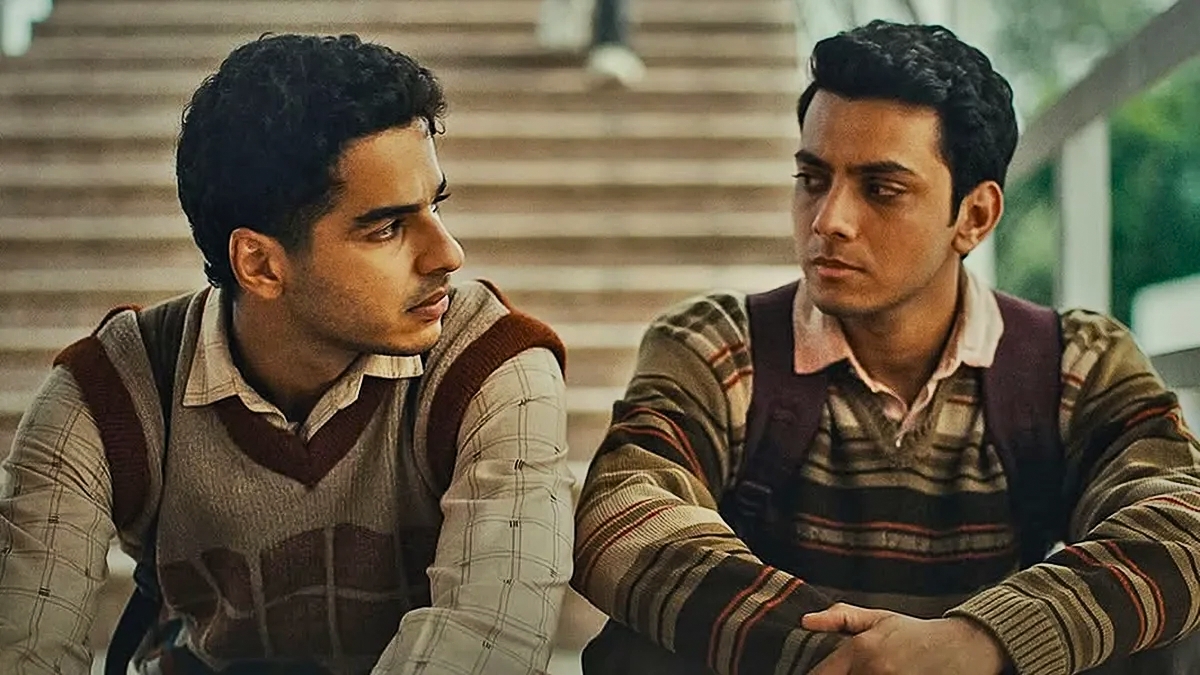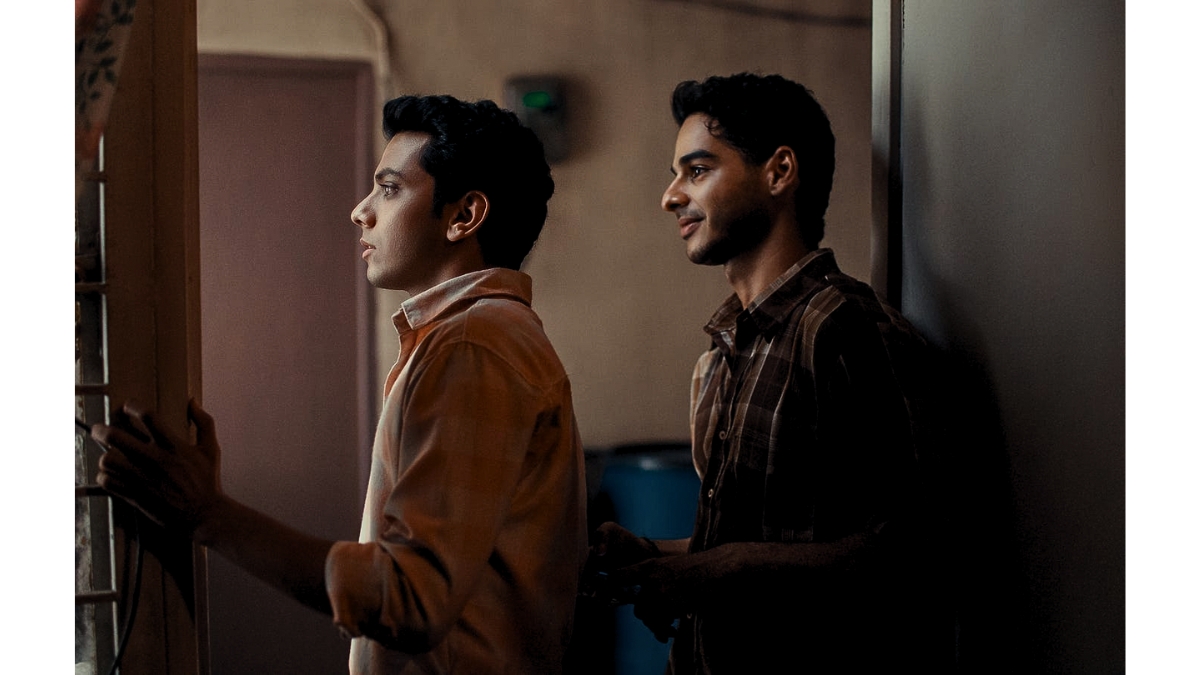Mumbai (Maharashtra) [India], September 20: Bollywood, with all its masala recipes and larger-than-life heroism, has finally produced something for the international platform that does not include item dances or aerial stunts. Neeraj Ghaywan’s Homebound—a gritty yet emotional drama featuring Ishaan Khatter, Vishal Jethwa, and Janhvi Kapoor—has been officially selected as India’s entry for the Oscars 2026 in the Best International Feature Film category. Cue the patriotic hashtags, industry chest-thumping, and of course, a little skepticism about whether we’ll actually make the final cut this time.
It isn’t the first time India has shot its filmmaking arrow at the Academy, but the buzz around Homebound indicates this isn’t a ceremonial attempt. Critics are terming it “India’s most authentic submission in years,” and social media warriors are already dreaming of red-carpet selfies in Los Angeles. The buzz is real. But beneath the glitz are unsettling questions—can the film create enough universal appeal to impress the voters in the Oscars, or will it join the long list of Indian films that quietly died at the mercy of the selection rounds of the Academy?
What is Homebound All About?
Essentially, Homebound is no sheen Bollywood export but a subtle exploration of identity, belonging, and family trauma. The film is a story about two brothers, Ishaan Khatter and Vishal Jethwa, who grapple with displacement and fractured family ties in the rural Madhya Pradesh terrain. Janhvi Kapoor ditches her glamorous persona to play a character laden with quiet determination, and Neeraj Ghaywan brings his signature realism to every frame.
It steers clear of melodrama for coarse truth—a luxury commercial Hindi cinema can rarely afford. It is the sort of film festival juries love: rough, complex, prickly. Whether the same will be true of mainstream audiences remains to be seen.
Why Did It Beat Pushpa 2 and Other Giants?
When the announcement dropped, many were stunned. Heavyweights like Allu Arjun’s Pushpa 2, Vivek Agnihotri’s The Bengal Files, and Kesari Chapter 2 were all in the race. Yet Homebound emerged victorious, and for good reason. Unlike the typical commercial entertainers, this film doesn’t scream box office—it whispers intimacy and burns slowly into the conscience.
The jury allegedly wanted a film to present India free of stereotypes, something in the style of Parasite rather than Pathaan. And Ghaywan, already trendy for Masaan, was naturally the default candidate to tell us all again that Indian films are not all about song-and-dance spectacle.
The Positives: A Global-Ready Story
Let’s credit where credit is due. Homebound is exactly the sort of movie that can touch Oscar voters. It’s issue-driven, stylish, and emotionally charged without bordering on melodrama. Ishaan Khatter gives what many are terming his career-best performance, while Vishal Jethwa’s gritty intensity keeps things real. Janhvi Kapoor, usually also accused of nepotism-fuelled star-kid status, is actually deserving of praise here for taking on a role that needed restraint instead of stardom.
The Madhya Pradesh heartlands-inspired cinematography, which is also winning plaudits globally, and the fact that Ghaywan has a conscience as a filmmaker, makes for a kind of package that juries enjoy backing.
The Negatives: Let’s Not Pop Champagne Just Yet
Of course, the cynics are already sharpening their quills. One common refrain? “India sends brilliant films, but the Oscars rarely notice.” Remember Court (2015) or The Lunchbox (2013) fiasco? Yes, India’s track record with submissions is less about merit and more about politicking. Some are asking whether Homebound truly stands a chance in a field that may include heavyweights from South Korea, France, and Iran.
And then there’s the domestic angle: while critics love it, box office numbers suggest that Homebound isn’t exactly a crowd-puller. The masses prefer the swagger of Pushpa or the patriotism of Kesari. Will Oscar jurors see this as a universal human story or a niche indie flick from the world’s most prolific film industry?
Ratings and Industry Buzz
Its present ratings on aggregator sites are at 3.8 to 4 out of 5. Critics are awarding it its layered storytelling but warning that its slow-burning pace isn’t for everyone. Trade pundits expect that the Oscar nomination will revive it at the Indian box office, as those who skipped it during its original run now flock to “see what the fuss is about.”
Social media responses have been varied responses of pride and snarky humor. One tweeted on X (formerly Twitter), “At least this time we sent something with substance, not just songs and slogans.” Another said, “Good luck, Homebound, may you not get lost in translation like the last dozen entries.”
What’s Next?
With the Oscar race now underway, the makers are likely to roll out a polished international campaign. Expect red-carpet appearances, film festival screenings, and targeted lobbying in Hollywood circles. The game is not just about having a good film; it’s about being visible in the right rooms. If Ghaywan and team manage to crack that, Homebound might just break India’s decades-long drought at the Academy Awards.
Conclusion: Hope With a Side of Caution
Homebound to be selected as India’s official entry for the Oscars 2026 must be a source of great pride. It signifies a change in the Indian film industry wanting artistic virtue over commercial influence. But let’s balance the confetti with some pragmatism. The Academy is notoriously volatile, and history has not exactly been kind to India.
But if ever a film deserved the shot, it’s this one. It’s a movie, it’s real, and it’s not afraid. By whatever means, a golden statue or a pat on the back, one thing is for sure—Homebound has already left its stamp on history. And that, Oscars or no, is something to rejoice.









